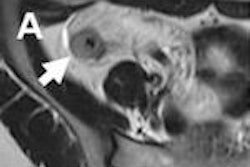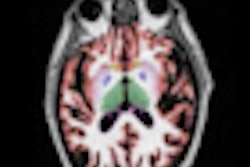Breast cancer survivors show significant neurological impairment, especially those who have undergone chemotherapy, according to a new study published online Monday in Archives of Neurology.
Shelli Kesler, PhD, of Stanford University School of Medicine, and colleagues investigated whether profiles of brain activation differ among breast cancer survivors treated with or without chemotherapy compared to healthy controls (Arch Neurol, November 2011, Vol. 68:11, pp. 1447-1453). They found that in women with breast cancer, the left caudal lateral prefrontal brain region may be particularly susceptible to the effects of chemotherapy, as well as disease severity.
The study included 25 women who had breast cancer and had undergone chemotherapy and surgical procedures to treat it, as well as 19 breast cancer survivors who had surgical treatment only and 18 women with no significant medical history. The women in the breast cancer groups were free of disease and had no history of recurrence at the time of the study.
Kesler's team used functional MRI (fMRI) to measure prefrontal brain activation associated with executive function -- that is, the ability to plan and organize. Each of the women who participated in the study performed a card-sorting task that required them to ascertain an implicit rule organizing the categorization of geometric figures.
Using variations in fMRI contrast values, the researchers measured three brain activation areas:
- Brodmann area (BA) 10/46: Left middle dorsolateral prefrontal gyrus extending into left inferior frontal gyrus (controls attention and memory)
- BA 8: Left caudal lateral middle frontal gyrus (in charge of switching attention between alternatives)
- BA 6: Left medial frontal gyrus (planning complex, coordinated movements)
Between-group differences in functional brain activation were shown by contrast value (a measurement of the brain's activation during the test minus its activation before).
Contrast value according to treatment type
|
Survivors of breast cancer showed significantly reduced BA 10/46 and BA 6 function compared with the controls, irrespective of treatment history, Kesler's group found. But the team was particularly interested to find that reduced BA 8 function was unique to the women who had received chemotherapy, suggesting neurotoxic injury from the treatment, according to the researchers.
The group also found that negative effects of chemotherapy on brain function may be exacerbated by factors such as increased age and lower educational level.




.fFmgij6Hin.png?auto=compress%2Cformat&fit=crop&h=100&q=70&w=100)




.fFmgij6Hin.png?auto=compress%2Cformat&fit=crop&h=167&q=70&w=250)











